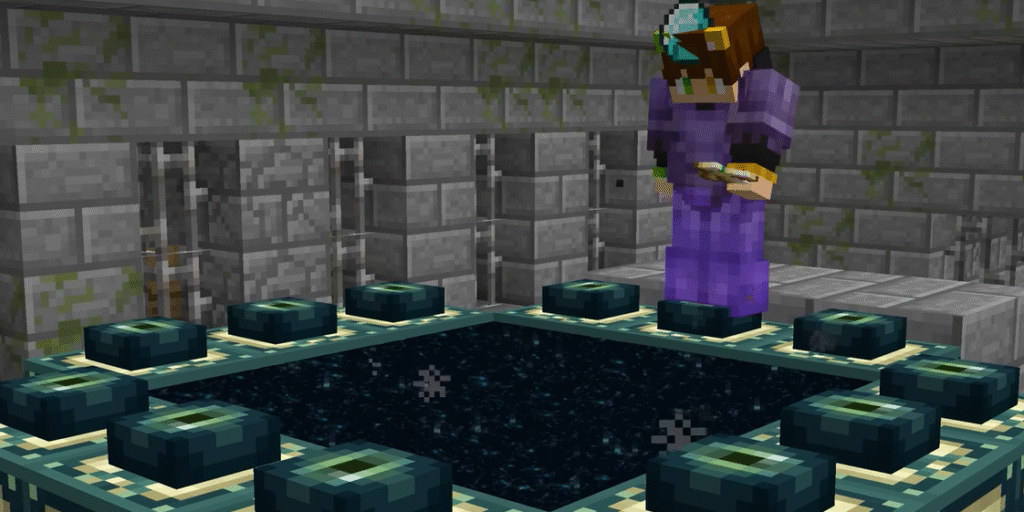The class action lawsuit against Minecraft has become a highly symbolic battle over how the tech giants create games that draw in millions of players. Parents accuse Mojang and Microsoft of incorporating features that are exceptionally successful in encouraging compulsive play, especially in younger audiences. According to numerous testimonies, parents describe their children spending endless hours glued to screens, unable to disconnect, their academic performance declining, and their moods shifting due to fatigue and frustration.
In the last ten years, researchers have been warning more and more about Internet Gaming Disorder, a disorder that has behavioral and neurological effects similar to those of other addictions. Through the use of features like achievements, frequent updates, and microtransactions, Minecraft has produced a setting that is profoundly challenging to escape while also being immensely creatively flexible. This balance leans dangerously toward compulsion for some kids, leaving families to deal with the consequences of their digital dependence.
Class action lawsuits have become much more comprehensive and detailed in recent days, citing the game’s addictive qualities as well as the developers’ purported carelessness in failing to issue warnings that were particularly clear. This is similar to how tobacco companies used to hide the dangers of smoking, putting profits ahead of the health of their customers, according to advocates. These analogies are especially convincing in courtrooms where interpretation is frequently influenced by history.
Minecraft Class Action Lawsuit Reference Table
| Game | Minecraft |
|---|---|
| Developer | Mojang Studios (acquired by Microsoft in 2014) |
| Issue | Class action lawsuit alleging addictive design and exploitation of minors |
| Plaintiffs | Families of minors affected by alleged video game addiction |
| Defendants | Microsoft Corporation, Mojang Studios, with similar cases linked to Epic Games (Fortnite) |
| Main Allegations | Intentionally addictive features, failure to warn, exploitative microtransactions, privacy violations |
| Reported Harm | Mental distress, emotional damage, physical developmental issues, financial strain |
| Legal Basis | California Unfair Competition Law, consumer protection statutes, federal privacy protections |
| Lawsuit Status | Active investigations and filings (2024–2025) |
| Broader Context | Part of growing litigation against gaming companies for alleged addiction tactics |
| Reference | ClassAction.org |

In order to streamline operations and relieve parents of the burden of suing Microsoft alone, legal firms are forming strategic alliances that enable them to mobilize plaintiffs across states. Reddit and Discord have become online forums for support, where parents share experiences that are remarkably similar in tone and content: tales of kids who stay up late, are tired at school, and are prone to emotional outbursts. These stories give what could otherwise be written off as impersonal statistics more emotional weight.
Gaming-related celebrities and influencers have started to express their thoughts. Some well-known YouTubers who made their careers out of Minecraft now recognize the fact that its design has two sides. While they acknowledge the risks of prolonged, uninterrupted sessions, they are astounded by the creativity it inspires. By bridging the gap between parents who feel caught off guard by the game’s unexpected consequences and industry insiders, their reflections offer a cultural dimension.
Features like microtransactions are cited in the lawsuits as being especially inventive but deceptive, intended to promote spending under the pretense of personalization. Parents claim that because kids are too immature to understand these psychological triggers, they are more likely to overspend. The way that gaming companies monetize their products could be drastically altered by such accusations in the context of consumer protection.
Amazingly, the legal controversy also involves contract law issues. There are those who contend that Mojang’s End User License Agreement (EULA) changes were made without adequate notice or consent. Given that consumer protection laws in places like the European Union demand explicit recognition of term changes, this presents both ethical and legal concerns. If judges concur, this could set a precedent for the enforcement of digital contracts that would have incredibly long-lasting effects.
The lawsuit has far-reaching social ramifications. The case might force businesses to put in place extremely effective age verification procedures, health warnings, and parental controls if the plaintiffs are successful. Even though these actions are simple technologically, they would signify a change in culture that puts player safety ahead of profit. These results would be especially helpful to parents, who would have more resources to help their families adopt healthy digital practices.
The stakes are equally high in terms of money. Microsoft runs the risk of suffering not just financial losses but also harm to its reputation as the custodian of one of the most recognizable games ever made. In the upcoming years, gaming companies might be subject to more stringent regulation, with their tactics being closely examined for safety and fairness. This could challenge developers to create games that are still engaging without going too far in the wrong direction, while also making the industry much safer for coming generations.

